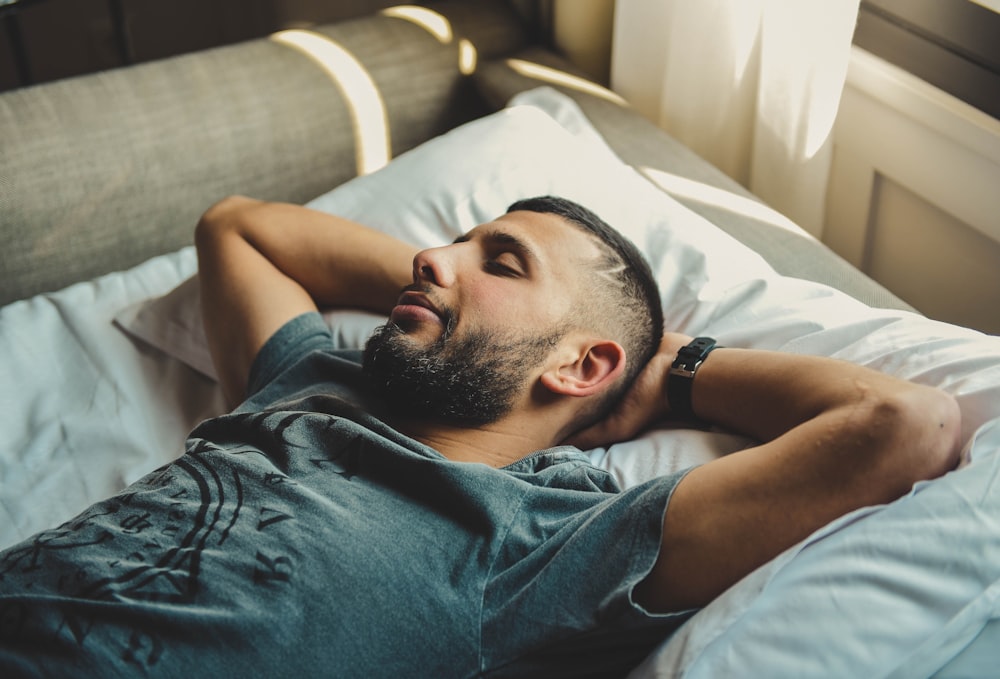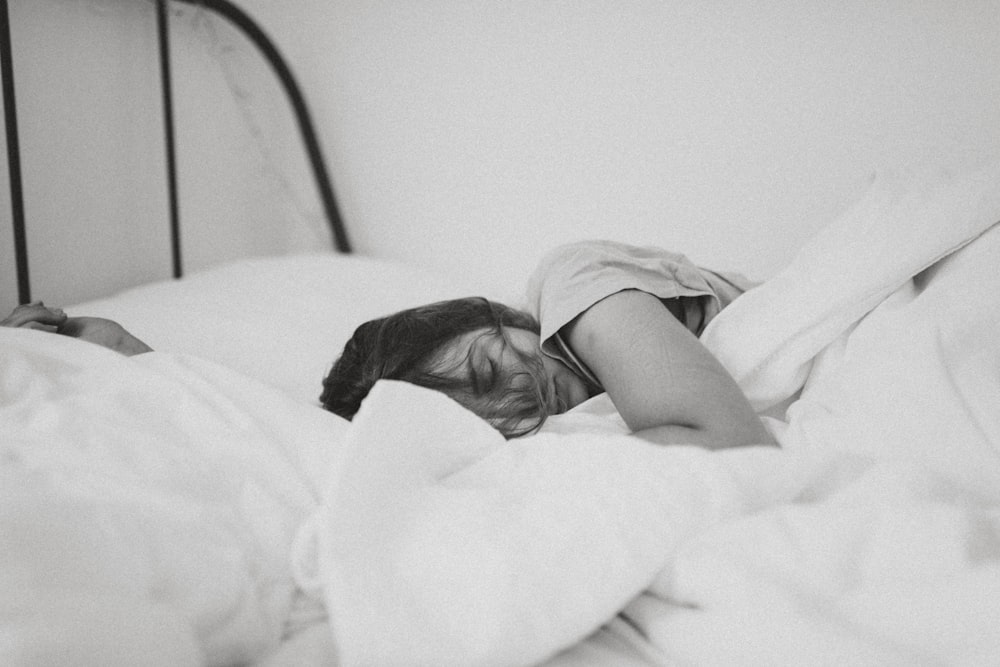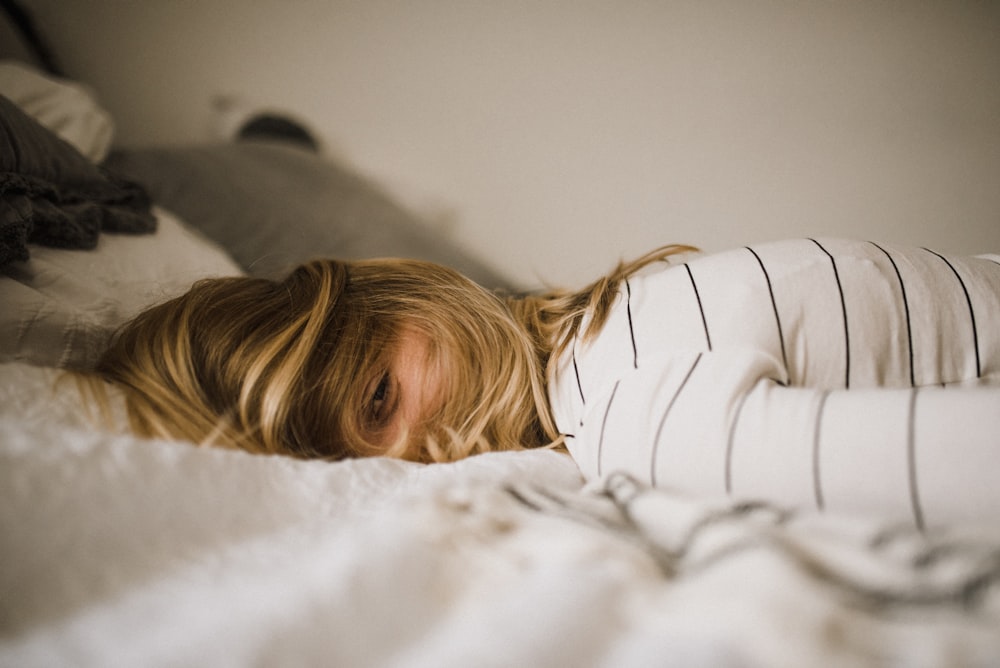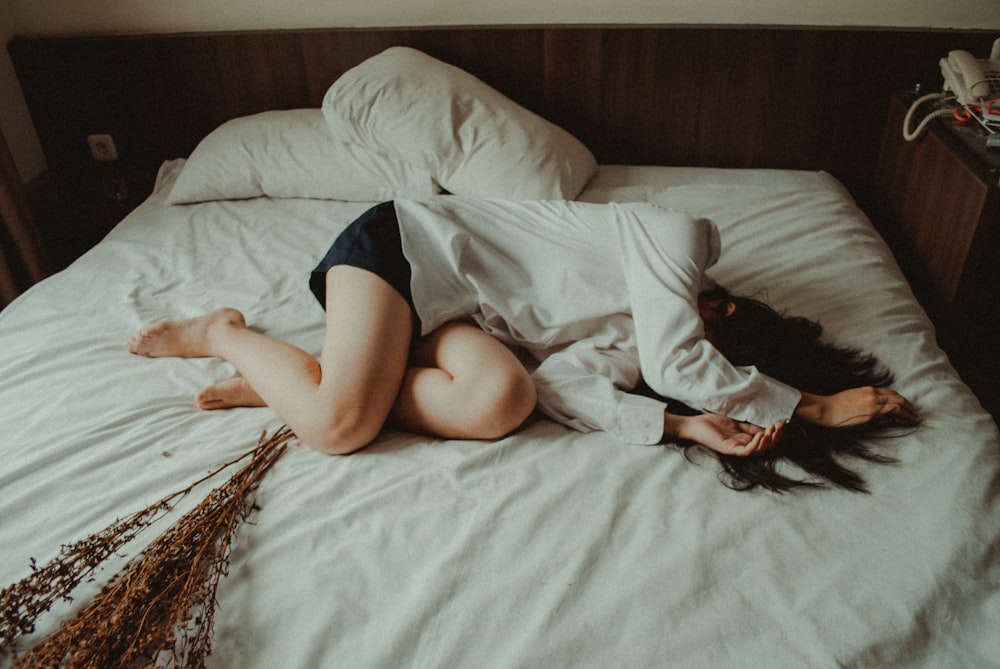Sleep better and quickly with these scientific tips
Who wouldn’t want to sleep peacefully after a tiring day. But due to stress, its hard to sleep often. We have a guide to help you in sleeping peacefully.
Your beds and mattresses
Image via Unsplash.com
To ensure that you are comfortable enough to unwind, you must have the ideal mattress for your needs and preferences. The right support for your spine is ensured by purchasing a supportive mattress and pillow, which helps prevent aches and pains. Your bed’s comfort is greatly influenced by the sheets and blankets you use. Consider purchasing bedding that is cozy to the touch and will keep you at a suitable temperature while you sleep.
Blocking light
Your circadian rhythm and sleep cycle may be affected by excessive light exposure. You can block light to keep it from disturbing your sleep by using blackout curtains on your windows or a sleep mask over your eyes. Avoiding strong light can aid in the shift from day to night and support the body’s generation of melatonin, a hormone that encourages sleep.
Minimize the noise around while you sleep
Image via Unsplash.com
Making a bedroom conducive to sleep requires minimizing noise. If you can’t get rid of the noise from the area, think about using a fan or a white noise machine to block it out. Another way to block out noises when you want to sleep is with earplugs or headphones.
Your bedroom’s temperature
You don’t want the temperature in your bedroom to be distractingly hot or cold. The optimal temperature can vary depending on the person, but the majority of research suggests sleeping in a room that is cooler, between 65 and 68 degrees.
Seven hours of sleep
Image via Unsplash.com
You must allocate that time in your schedule if you want to ensure that you obtain the appropriate amount of sleep each night. Work backwards from your set wake-up time to find a target bedtime that allows for at least seven hours of sleep. Give yourself as much time as you can to wind down and prepare for sleep before going to bed.
Waking around same time
If you are waking up at various times throughout the night, it is very impossible for your body to adjust to a regular sleep schedule. Decide on a wake-up time and stick to it, even on days like the weekends or other days when you may otherwise be tempted to skip breakfast.
Naps around 20 minutes
Image via Unsplash.com
If you want to get a good night’s sleep, you must be cautious when taking naps. If you nap for a long time or too late in the day, it could be hard to fall asleep when you need to. The best time to sleep is after lunch in the early afternoon, and a 20-minute nap works nicely.
Relaxing before going to bed
Being at peace makes it much simpler to fall asleep. You can prepare yourself for sleep by doing things like reading quietly, doing low-impact stretching, relaxing exercises, and listening to calming music. Instead of attempting to get to sleep, concentrate on relaxing. Examples of relaxation techniques that can aid in falling asleep include controlled breathing, mindfulness meditation, progressive muscle relaxation, and guided visualization.
Disconnect devices
Your brain can get overstimulated by tablets, cell phones, and laptops, making it difficult to completely unwind. Additionally, the light from these electronic devices can prevent your body from producing melatonin normally. Try to unplug for an hour or more before going to bed as much as you can.
Exposure to natural light
Image via Unsplash.com
The amount of light exposure controls the body’s biological clock. Try to take in daylight by going outside or opening windows or curtains to natural light because sunlight has a powerful influence. Early morning exposure to natural light can help your circadian rhythm return to normal. You might discuss using a light treatment box with your doctor if using natural light is not an option.
Exercising daily for a better sleep
The adjustments it causes in energy utilization and body temperature have numerous positive effects on health, and they can also help you have a good night’s sleep. Most health professionals advise against doing vigorous exercise right before bed since it may make it more difficult for your body to wind down for sleep.
Limiting caffeine after noon
Coffee, tea, and sodas are just a few of the caffeinated liquids that are among the most consumed worldwide. Some people may be tempted to try using caffeine’s energy boost to combat daytime drowsiness, but this strategy is unsustainable and can result in long-term sleep deprivation. To prevent this, monitor your caffeine intake and limit it in the afternoon when it may prevent you from falling asleep.
Try avoiding alcohol to sleep better
Image via Unsplash.com
Some folks enjoy a nightcap before bed since alcohol might make you drowsy. It is advised to avoid alcohol in the hours leading up to bedtime because alcohol has negative effects on the brain that may reduce the quality of your sleep.
Dinner few hours before you go to sleep
If your body is still digesting a large dinner, it could be more difficult to fall asleep. Try to avoid late dinners and limit particularly fatty or spicy foods to reduce the likelihood of food-related sleep disturbances. If you need a snack in the evening, choose something simple.
Limit nicotine and smoking
A variety of sleeping issues, including trouble falling asleep and disturbed sleep, have been linked to exposure to tobacco, particularly second-hand smoke. Because it is a stimulant, nicotine usage, especially in the evening, has been shown to interfere with sleep.
Bed for sleep and sex only
Image via Unsplash.com
If your bed is comfortable, you might be tempted to spend your free time in it, but doing so can interfere with your ability to fall asleep. Try to restrict activities in your bed to just sleeping and having sex if you want to create a strong mental association between your bed and rest.
Get out of bed if you can’t sleep
You want to prevent making the mental association between your bed and aggravation from lack of sleep. This means that it is better to get out of bed and do something calming in low light if you have been trying to fall asleep for about 20 minutes. When you start to feel fatigued, go back to bed and avoid using electronics or checking the time.
USEFUL LINKS:
Check out some more healthy tips for a better sleep
Click here to know uses and effects of detoxing












One Comment on “Sleep better and quickly with these scientific tips”